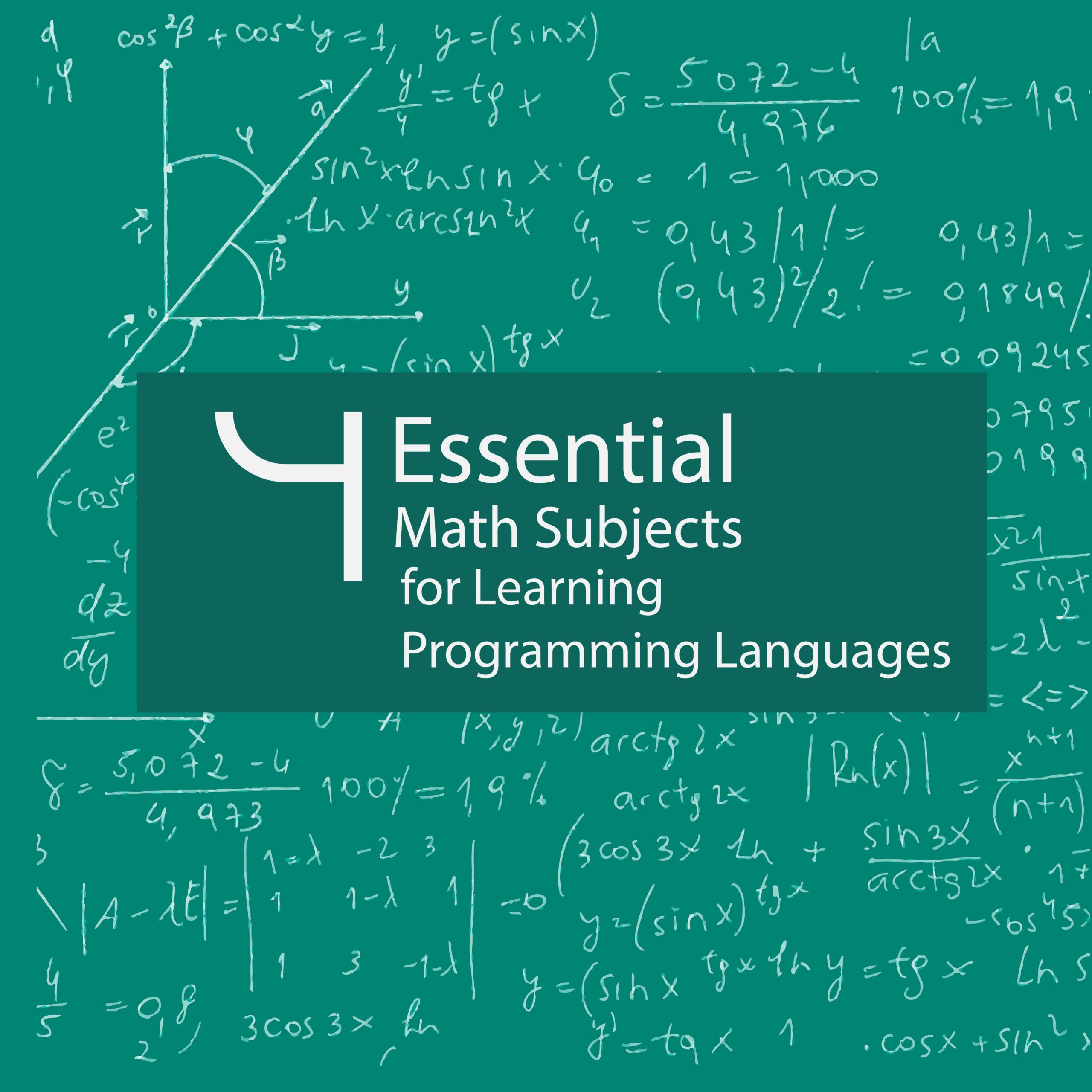
Essential Math Subjects for Learning Programming Languages
Introduction
In the world of programming, mathematics plays a critical role. From designing algorithms to handling data, math is deeply intertwined with the development of software. Here are four essential math subjects that are crucial for anyone learning programming languages.
1. Algebra
Overview
Algebra involves working with variables and numbers to formulate rules and procedures. It forms the foundation of mathematics and programming, facilitating everything from basic calculations to complex algorithm development.
Why It Matters
- Equation Manipulation: Algebra simplifies solving equations and handling variable transformations.
- Algorithm Design: Many algorithms are built on algebraic principles using variable manipulation and solving equations.
- Computational Solutions: Programs involve numerous mathematical operations where algebra helps manage data and perform calculations.
Example:
- Formulas: Programs use algebraic formulas like
a = 2x + 3for calculating and processing data.
2. Calculus
Overview
Calculus focuses on continuous change and involves differential and integral calculus. It is essential for understanding change over time and areas under curves, which are crucial for many advanced programming tasks.
Why It Matters
- Algorithm Development: Calculus is critical for designing algorithms that deal with non-linear or variable rates of change.
- Machine Learning and Data Analysis: Many machine learning algorithms and data analysis techniques use calculus for optimization and modeling.
- Performance Measurement: Calculus helps measure and optimize the performance of programs and procedures.
Example:
- Speed and Acceleration: Data analysis programs use calculus to calculate speed and acceleration based on variable changes.
3. Probability and Statistics
Overview
Probability and statistics deal with data analysis and evaluation using probabilistic principles. They are involved in analyzing data and predicting future events, which are vital for many programming applications.
Why It Matters
- Data Analysis: Understanding data patterns and statistical analysis is key for programming tasks involving data.
- Machine Learning: Machine learning algorithms rely heavily on probability and statistics for predictive modeling.
- Decision Making: They provide tools for data-driven decision-making processes.
Example:
- Predictive Models: Machine learning programs use probability to assess the likelihood of various outcomes.
4. Discrete Mathematics
Overview
Discrete mathematics involves non-continuous elements such as numbers, graphs, and logical statements. It is essential for understanding patterns and structures in non-continuous data.
Why It Matters
- Understanding Algorithms: Modern algorithms and procedures are often based on principles of discrete mathematics.
- Computational Structures: Structures like graphs, networks, and data management are closely related to discrete mathematics.
- Problem Solving: It provides deep insights into solving problems involving discrete elements like specific cases or decisions.
Example:
- Graphs and Networks: Programs managing data through graphs and networks use discrete mathematics to calculate relationships.
Conclusion
Learning programming languages has a strong foundation in mathematics. Algebra, calculus, probability and statistics, and discrete mathematics are essential subjects for understanding algorithms, data analysis, and software development. Those learning programming will find that these mathematical principles greatly enhance their ability to develop and innovate in their field.
